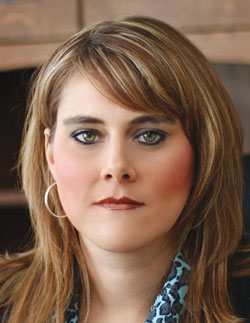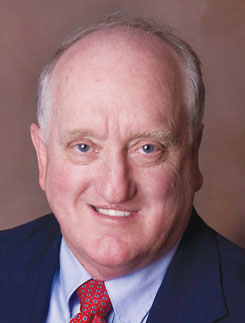There are a variety of changes we experience throughout a lifetime–some that have already been planned for and others come as more of a shock or surprise. These unplanned changes are often difficult, both emotionally and in terms of management, but there are many businesses that help their clients successfully adjust to and navigate through whatever life throws their way. Knowing who to partner with is the first step to dealing with these situations effectively so you can focus on moving forward in a positive direction.
 Having health issues is one of the most common unplanned life changes. Mindy Crouch of Pando Geriatrics explains that often, people plan for the “golden years” and then get sick and don’t get to spend their retirement like they wanted to. She explains that “this change in their plans is very hard to cope with. Declining health usually determines that one must move out of their house, and they typically feel like they have lost control over the situation. Their children, friends and doctors are usually influential in the move and this creates a feeling that all that this person has worked for their entire lives doesn’t mean anything anymore. It’s important for people to realize that they are valued and to hold on to what they cherish–not what other people tell them to cherish. What is junk to one person is another person’s treasure and that has to be remembered when it is time to move and as things change.” She adds “You have to acknowledge the loss that occurs with any life change and process the feelings when they happen. We always try to pretend that we are ‘okay’ and ‘strong for others’ when in fact that is not what we are really feeling. Sooner or later, those feelings will come out no matter how they get bottled up. In therapy, you are provided an objective ear to help you process those feelings and allow a safe place for you to let down your guard and experience how you really feel.” Pando Geriatrics offers mental health counseling as well as grief counseling to the geriatric population and their families, and can see the client in their facility or in the clients’ home or office.
Having health issues is one of the most common unplanned life changes. Mindy Crouch of Pando Geriatrics explains that often, people plan for the “golden years” and then get sick and don’t get to spend their retirement like they wanted to. She explains that “this change in their plans is very hard to cope with. Declining health usually determines that one must move out of their house, and they typically feel like they have lost control over the situation. Their children, friends and doctors are usually influential in the move and this creates a feeling that all that this person has worked for their entire lives doesn’t mean anything anymore. It’s important for people to realize that they are valued and to hold on to what they cherish–not what other people tell them to cherish. What is junk to one person is another person’s treasure and that has to be remembered when it is time to move and as things change.” She adds “You have to acknowledge the loss that occurs with any life change and process the feelings when they happen. We always try to pretend that we are ‘okay’ and ‘strong for others’ when in fact that is not what we are really feeling. Sooner or later, those feelings will come out no matter how they get bottled up. In therapy, you are provided an objective ear to help you process those feelings and allow a safe place for you to let down your guard and experience how you really feel.” Pando Geriatrics offers mental health counseling as well as grief counseling to the geriatric population and their families, and can see the client in their facility or in the clients’ home or office.
 Amanda Hebner of Focus C3 (Counseling, Coaching and Consulting) says that the most difficult aspect of unplanned life changes is accepting the change. She notes that depending on what the issue is, many people fail to accept that life has changed and therefore struggle to adjust. Hebner says “It is crucial to be able to organize thoughts and create a plan to deal with what they need to do moving into the future. When things change that we did not expect to change we can become overwhelmed by what may be necessary to adjust. It can be difficult to create a plan to deal with the things that may be presented at the time, or to feel like there is not enough of you to get done what you need to do. Many types of changes may cause people to feel isolated for one reason or another. This is a time that it may be important to be sure that you have other people such as friends, family or a professional to talk to or spend time with.” Hebner advises that one of the best strategies is to slow down and remember to take care of yourself. Depending on what the change may be, many people feel like all of their decisions have to be made right now or everything will fall apart. It is important to take some time to decide what really needs to be done and what can wait. It is also important to find people that can help you, whether that is a friend, family member or professional. She adds, “Even though many of us do not like to think about many of the unplanned life changes, they do happen. If you can put some plans in place before they happen, it may not make the event less painful but it may help you in dealing with it afterwards. Seeking professional help to deal with such issues as grief or career planning can also help the processes be less painful as time progresses.”
Amanda Hebner of Focus C3 (Counseling, Coaching and Consulting) says that the most difficult aspect of unplanned life changes is accepting the change. She notes that depending on what the issue is, many people fail to accept that life has changed and therefore struggle to adjust. Hebner says “It is crucial to be able to organize thoughts and create a plan to deal with what they need to do moving into the future. When things change that we did not expect to change we can become overwhelmed by what may be necessary to adjust. It can be difficult to create a plan to deal with the things that may be presented at the time, or to feel like there is not enough of you to get done what you need to do. Many types of changes may cause people to feel isolated for one reason or another. This is a time that it may be important to be sure that you have other people such as friends, family or a professional to talk to or spend time with.” Hebner advises that one of the best strategies is to slow down and remember to take care of yourself. Depending on what the change may be, many people feel like all of their decisions have to be made right now or everything will fall apart. It is important to take some time to decide what really needs to be done and what can wait. It is also important to find people that can help you, whether that is a friend, family member or professional. She adds, “Even though many of us do not like to think about many of the unplanned life changes, they do happen. If you can put some plans in place before they happen, it may not make the event less painful but it may help you in dealing with it afterwards. Seeking professional help to deal with such issues as grief or career planning can also help the processes be less painful as time progresses.”
Farm Bureau Financial Services offers a variety of insurance plans and options that will provide you with the proper coverage in the event of any unplanned life changes. Shane Myers of Farm Bureau Financial Services says that the most important factor in dealing with unplanned life changes is to take the time to sit down and minimize those potential risks. The agents at Farm Bureau work with each client diligently to educate them on their resources and options as well as planning for “unplanned” events as much as possible. Myers notes that the best strategy is different for each client, but their goal is to pass any potential risk along to an insurance company through Life Insurance, Disability Insurance, Long Term Care Insurance, and other options available. Myers and the other agents at Farm Bureau Financial Services take the time to do a thorough review of each situation. He states “Whether it is a business or new family, each situation is unique. After we have reviewed their potential needs, we put together a plan that works for that client and help them through the process to implement the plan. Life insurance is generally the most important way to protect against unplanned events in peoples’ lives!”
 David B. Latenser of Latenser & Johnson, P.C., deals with divorce, injury, disability and unemployment life changes the most in his practice. He notes that the most difficult aspects of these changes can be loss of income and earning capacity, forced relocation, related expenses and possible disruption of family life. It is necessary for individuals that find themselves in this position to obtain information, set priorities and make informed decisions. Latenser adds, “Divorce clients often tell me how much they appreciate being informed by their attorney on a timely basis about issues and developments in their case, and about court procedures such as discovery, parenting plans, mediation, trial and appeal. These clients benefit from analysis of current and projected incomes, earning capacities, living expenses, assets and liabilities. They appreciate an upfront discussion of current laws in their state affecting what is the ‘marital estate’ and what factors can determine how the ‘marital estate’ can be divided by agreement or by courts. Divorcing clients with minor children require an understanding of laws in their state concerning how the parties can resolve issues concerning parenting time, custody and visitation with minor children, child support, and spousal support; and what factors can determine how a court may rule on these issues or approve an agreement of the parties concerning division of property and obligations, custody, parenting time/visitation, child support, spousal support and related issues. Estate planning clients often tell me they have a great ‘peace of mind’ from having a current estate plan that they understand and can depend upon in the event of the unexpected. This includes having a current will, a current durable power of attorney for property and power of attorney for health care, and annual review of these important documents with the client. These clients often express great relief in knowing who will be involved on their behalf and on behalf of their loved ones in the event of the client’s disability or death. For example, a client may have dependent minor children, and may wish to provide for the appointment of a guardian in their will if it is necessary to appoint a guardian for any of their children. In addition, clients can give specific instructions in a durable power of attorney or in a grantor trust, concerning access and control of assets during their lifetime, to occur in the event of the client’s disability. Also, in a power of attorney for health care, clients can appoint an agent or attorney-in-fact to make health care decisions for them in the event the client is unable to do so, and give instructions on care to be administered, in the event of a terminal condition or a persistent vegetative state.”
David B. Latenser of Latenser & Johnson, P.C., deals with divorce, injury, disability and unemployment life changes the most in his practice. He notes that the most difficult aspects of these changes can be loss of income and earning capacity, forced relocation, related expenses and possible disruption of family life. It is necessary for individuals that find themselves in this position to obtain information, set priorities and make informed decisions. Latenser adds, “Divorce clients often tell me how much they appreciate being informed by their attorney on a timely basis about issues and developments in their case, and about court procedures such as discovery, parenting plans, mediation, trial and appeal. These clients benefit from analysis of current and projected incomes, earning capacities, living expenses, assets and liabilities. They appreciate an upfront discussion of current laws in their state affecting what is the ‘marital estate’ and what factors can determine how the ‘marital estate’ can be divided by agreement or by courts. Divorcing clients with minor children require an understanding of laws in their state concerning how the parties can resolve issues concerning parenting time, custody and visitation with minor children, child support, and spousal support; and what factors can determine how a court may rule on these issues or approve an agreement of the parties concerning division of property and obligations, custody, parenting time/visitation, child support, spousal support and related issues. Estate planning clients often tell me they have a great ‘peace of mind’ from having a current estate plan that they understand and can depend upon in the event of the unexpected. This includes having a current will, a current durable power of attorney for property and power of attorney for health care, and annual review of these important documents with the client. These clients often express great relief in knowing who will be involved on their behalf and on behalf of their loved ones in the event of the client’s disability or death. For example, a client may have dependent minor children, and may wish to provide for the appointment of a guardian in their will if it is necessary to appoint a guardian for any of their children. In addition, clients can give specific instructions in a durable power of attorney or in a grantor trust, concerning access and control of assets during their lifetime, to occur in the event of the client’s disability. Also, in a power of attorney for health care, clients can appoint an agent or attorney-in-fact to make health care decisions for them in the event the client is unable to do so, and give instructions on care to be administered, in the event of a terminal condition or a persistent vegetative state.”
In fact, it is estimated that 70% of Americans have no estate plan, which means most of us are not contemplating what to do with our assets and/or legacy upon death. People generally do not want to discuss death or plan for death, and creating a proper estate plan deals with death issues. This makes it difficult to convey the importance  of estate planning, and how it assists family members when tragic events do happen, to this large percentage of Americans. Similarly, another area of concern is for people that do not have any disability planning completed. Charles Dorwart of LifePlan Nebraska stresses that disability planning should be done by people from age 18 to 100. The main concern is what will happen if you become incapacitated at any age and can’t pay your bills or make your own medical decisions. In most circumstances, power of attorney documents also need to be completed for someone to handle their financial and medical affairs in the event of their incapacity. Dorwart says “Even younger couples who may have a newborn child should, at the very least, have a will-based estate plan that includes power of attorney documents. That way they will have named the people who are to be the guardians or substitute parents for their child and the trustee who will handle the financial needs for the child in the event that their parents die suddenly. The best advice is that everyone should have an estate plan, whether it is a will-based plan or a trust-based plan. Everyone should view their estate plan as a plan that needs to be reviewed as the family grows, as the family financial picture changes, and as the laws change. Life changes and the estate plan should be reviewed to account for those events.”
of estate planning, and how it assists family members when tragic events do happen, to this large percentage of Americans. Similarly, another area of concern is for people that do not have any disability planning completed. Charles Dorwart of LifePlan Nebraska stresses that disability planning should be done by people from age 18 to 100. The main concern is what will happen if you become incapacitated at any age and can’t pay your bills or make your own medical decisions. In most circumstances, power of attorney documents also need to be completed for someone to handle their financial and medical affairs in the event of their incapacity. Dorwart says “Even younger couples who may have a newborn child should, at the very least, have a will-based estate plan that includes power of attorney documents. That way they will have named the people who are to be the guardians or substitute parents for their child and the trustee who will handle the financial needs for the child in the event that their parents die suddenly. The best advice is that everyone should have an estate plan, whether it is a will-based plan or a trust-based plan. Everyone should view their estate plan as a plan that needs to be reviewed as the family grows, as the family financial picture changes, and as the laws change. Life changes and the estate plan should be reviewed to account for those events.”
Charles E. Dorwart, P.C., L.L.O. and LifePlan Nebraska promote a Three Step Estate Planning Process. Step one is the design and completion of the estate plan. Their team works closely with the family to determine the best estate planning approach. To guarantee that the trust-based estate plan is going to work properly, LifePlan strives to place all of the family assets in the family’s trust with the trustees being the owners of the assets or the trust being the beneficiary of life insurance, annuity, IRA, and pension proceeds. Step two is a maintenance program they provide for the families. LifePlan works with the families throughout the remainder of their lives to properly maintain and update their trust-based plan. Step two also includes yearly contact to make sure the assets are properly titled to work with the trust, as well as bi-annual educational programs for client families to help all family members fully understand the trust-based estate planning process. Additionally, step two includes all consultations throughout the calendar year, whether it is one or fifty consultations with the family. Finally, it includes the replacement of all estate planning documents essentially every third year. Step three includes legal assistance for the family when parents are disabled or they die as there are settlement issues that arise during the disability of the parents and at the death of the parents. This process is meant to be a lifelong counseling process for families.
While the saying “expect the unexpected” is a popular call to action; unfortunately, it is not as easy for some as for others. Dealing with unplanned life changes can be a very real challenge. Life changes can impact the way we operate in every facet of our lives. Many times people need professional help to get them through some of these unplanned life changes, such as job loss, loss of a loved one, aging parents and even mental illness in the family. These challenges seem unbearable but help is available.
Premier Psych is an outpatient mental health clinic that specializes in the treatment of people who present with these and many other issues that can be caused by changing life dynamics. Premier Psych’s staff spend time assessing the issues and taking the appropriate course of action to help patients regain mental stability as they navigate life’s challenges. These solutions may include prescribing the proper medication, deep transcranial magnetic stimulation (which is a non-invasive treatment for depression), and/or ordering pharmacogenetic testing to bring balance to mental stability. Counseling, psychological evaluation and therapy may be needed to break the cycle of decline. In some cases, patients need to be encouraged to embrace change as something wonderful could result from dealing with change. Therapy can also be as simple as a provider suggesting to a client that it doesn’t take any more energy to think of a change in a positive way than it does to worry or fret about the unknown and that it is sometime fun and exhilarating to anticipate something new or unexpected.
Georgia is a 49 year old from Lincoln who has changed jobs twice in the last two years, gone through a divorce after being married for 20 years, and recently lost her best friend due to a sudden death. Georgia sought treatment at Premier Psych due to the fact that unplanned and planned life changes and challenges became too much of a burden for her to cope with other aspects of her life.
 For 49 year old Georgia, Premier Psych providers recommended a divorce support group and other resources that helped her start to deal with the unplanned life changes that were taking control of her life. Her story is just one example of the variety of treatment options that could be as simple as a referral of a support group or medications that can assist the patient. If you, a loved one, or anybody in your life may need help in dealing with unplanned life changes, please call Premier Psychiatric Group at 402-476-6060 or 877-926-8867 or visit their website at www.premierpsych.com.
For 49 year old Georgia, Premier Psych providers recommended a divorce support group and other resources that helped her start to deal with the unplanned life changes that were taking control of her life. Her story is just one example of the variety of treatment options that could be as simple as a referral of a support group or medications that can assist the patient. If you, a loved one, or anybody in your life may need help in dealing with unplanned life changes, please call Premier Psychiatric Group at 402-476-6060 or 877-926-8867 or visit their website at www.premierpsych.com.
Throughout life we will also lose our pets. People love their pets, become very attached to them, and consider them to be a member of their family. Animals provide us with companionship, emotional support, but most of all, unconditional love. Paws & Remember works to help pet owners in a time of mourning and reflection. By bringing together support services and memorialization options, Paws & Remember helps pet owners cope with loss and honor their pets in an appropriate, meaningful way. Valerie Gates of Paws & Remember says, “Upon the death of a pet, it is not unusual for us to feel a deep sense of loss. It is very natural. By honoring our pets while they are alive or memorializing them after their passing, we can hold a piece of them close to our heart.” You can find more information about Paws & Remember at www.pawsandremember.com.
Many times in life changes occur without warning. This forces us to engage and deal with these changes in the best way we know how. During those times, the more tools and resources you have access to already, the better you will be able to manage any crisis or loss. There are many local businesses and organizations that can help you prepare for these events to ensure that you will have a plan of action and support when you need it the most.





